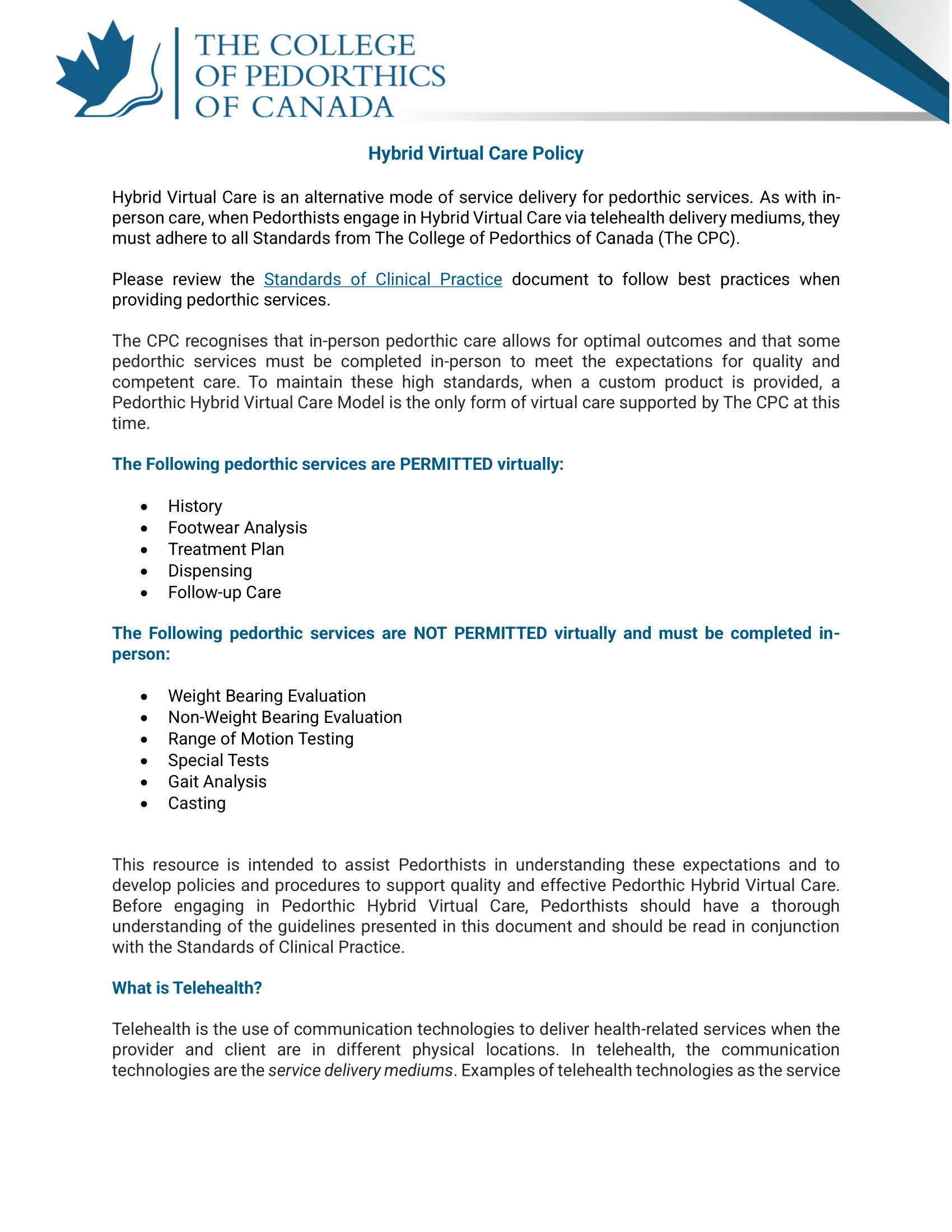Hybrid Virtual Care is an alternative mode of service delivery for pedorthic services. As with in-person care, when pedorthists engage in Hybrid Virtual Care via telehealth delivery mediums, they must adhere to all Standards from The College of Pedorthics of Canada (CPC).
Please review the Standards of Clinical Practice document to follow best practices when providing pedorthic services.
The CPC recognises that in-person pedorthic care allows for optimal outcomes and that some pedorthic services must be completed in-person to meet the expectations for quality and competent care. To maintain these high standards, when a custom product is provided, a Pedorthic Hybrid Virtual Care Model is the only form of virtual care supported by the CPC at this time.
The Following pedorthic services are PERMITTED virtually:
- History
- Footwear Analysis
- Treatment Plan
- Dispensing
- Follow-up Care
The Following pedorthic services are NOT PERMITTED virtually and must be completed in-person:
- Weight Bearing Evaluation
- Non-Weight Bearing Evaluation
- Range of Motion Testing
- Special Tests
- Gait Analysis
- Casting
This resource is intended to assist pedorthists in understanding these expectations and to develop policies and procedures to support quality and effective Pedorthic Hybrid Virtual Care. Before engaging in Pedorthic Hybrid Virtual Care, pedorthists should have a thorough understanding of the guidelines presented in this document and should be read in conjunction with the Standards of Clinical Practice.

 Hybrid Virtual Care PDF
Hybrid Virtual Care PDF